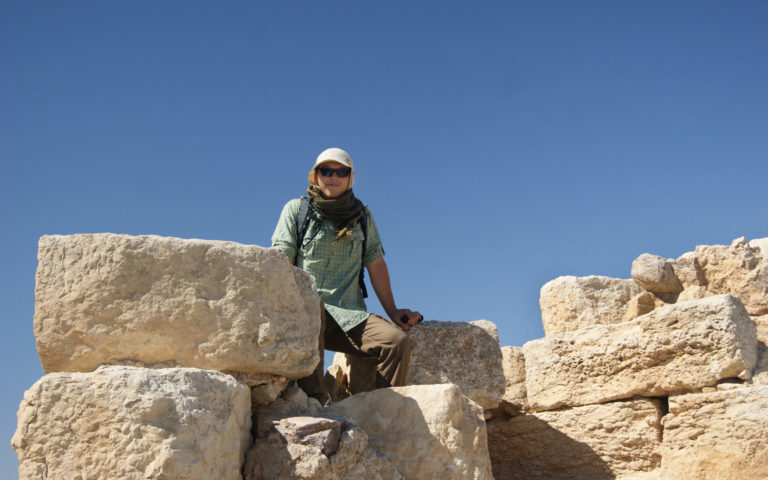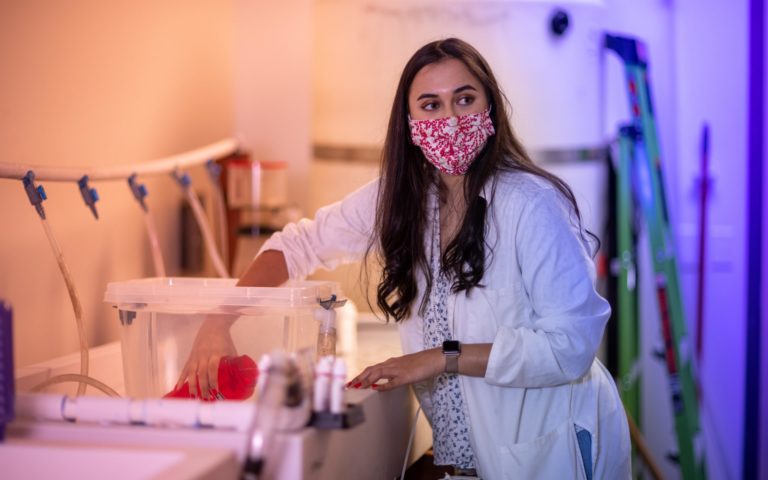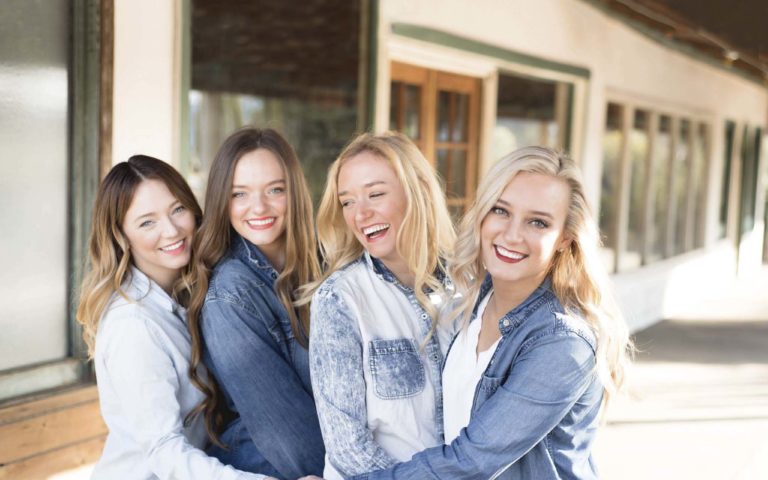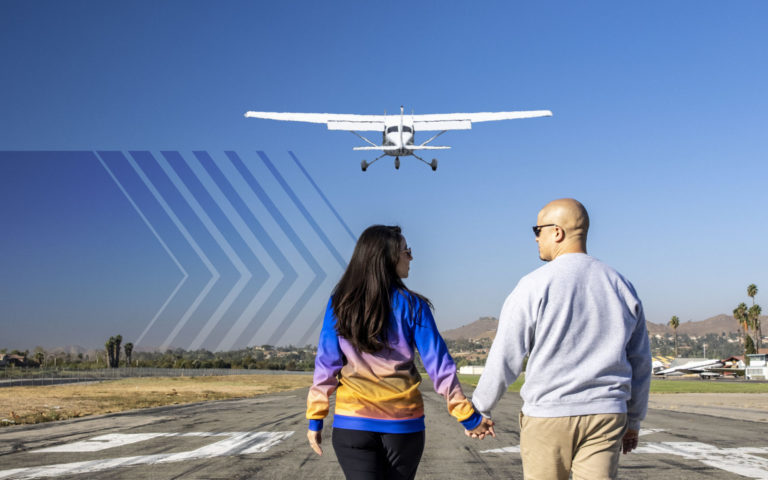by Scott Steward
Keoni Oliver was just a kid growing up in Pasadena, California, when at age 7 he watched in horror the events of September 11, 2001 unfold on live television.
Today, he is a graduate of La Sierra’s Criminal Justice program awaiting his diploma for his recently completed Master’s Degree from Israel’s prestigious Herzliya University. Keoni—who has an insatiable appetite for history, problem solving, and continuing education—wants to bring Christian compassion and ethical practices to a career with a U.S. government counter-terrorism agency.
“My mother still has a hard time believing I remember anything about the pre-9/11 world, but I do,” says Keoni. “And I remember that day so vividly. I was playing with my plastic farm set, the one with the barn with a bright red roof, on the living room floor while [that terrible day] played out on TV.”
Keoni has known ever since those early years that he was made for a career in criminal justice. On top of that, the importance and benefits of Christian higher education were poured into his heart and mind by his father, an OB-GYN, and especially his mother, a nurse, who was the first in her family to earn a college degree and is soon to complete her PhD in Lifestyle Medicine at Southern Adventist University.
Layered under those lessons were others about hard work and servant-leadership that he gleaned by enjoying classic TV cop shows like Dragnet and Adam-12 from the ’60s and ’70s with his father (a Biological Statistics grad from La Sierra). The goodness and dedication to compassionate service portrayed in those shows stuck with him, but he’s not much of a fan of today’s CSI and FBI crime dramas.
“Those aren’t very realistic,” he says.
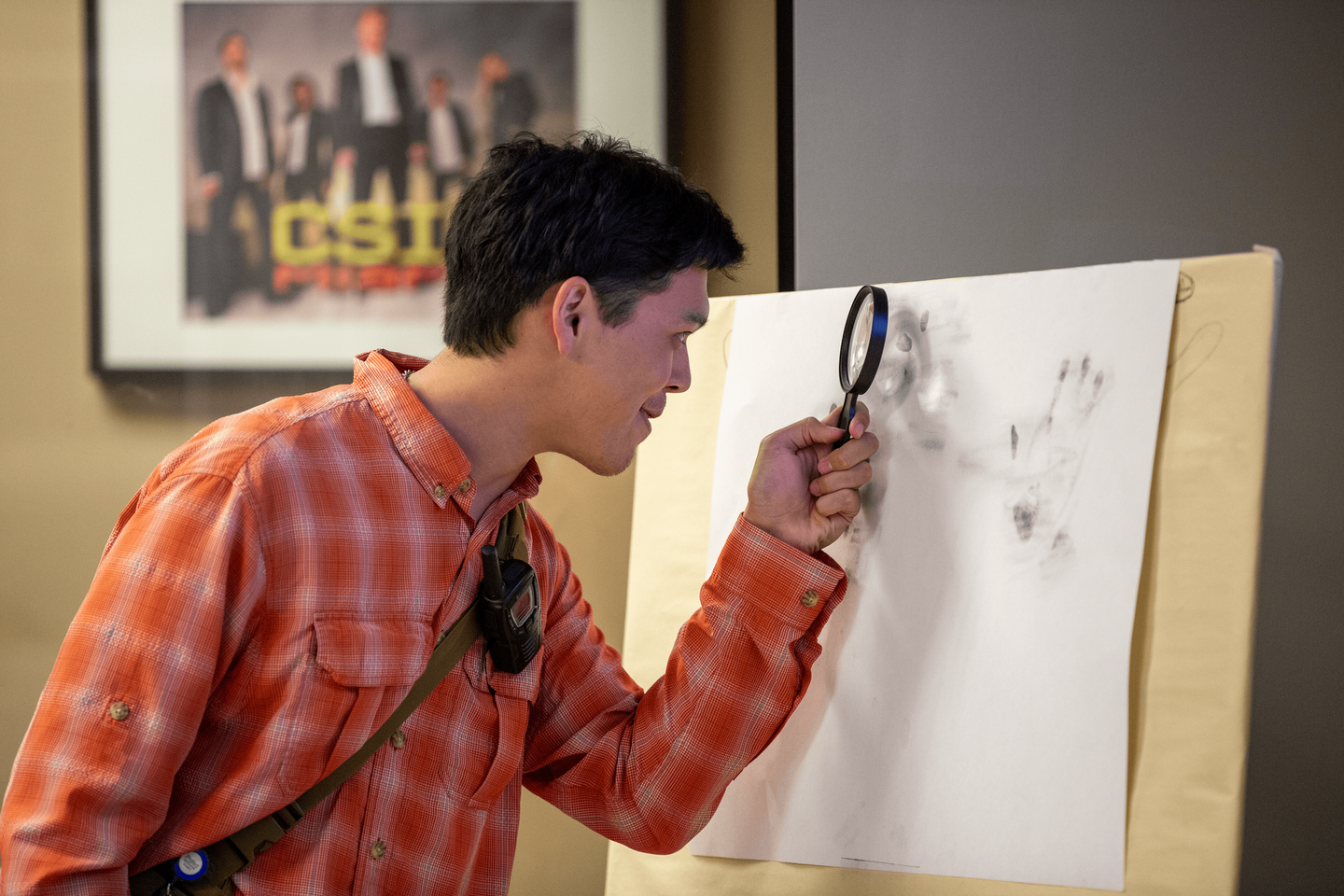
Fast-forward to a new home in Wasilla, Alaska, and growing up in the nearby Palmer Seventh-day Adventist church. “[In Alaska], I took a few years off after high school to decide exactly what I wanted to do,” he says, “and I swore I would never go back to California.” But he couldn’t shake the calling to a vocation in the science and psychology of catching the bad guys.
“I applied at two Seventh-day Adventist universities, but it was getting accepted to La Sierra’s Criminal Justice program that made the difference,” Keoni recalls. “I had great professors and mentors at La Sierra. Professor Fuller was a wonderful teacher in Forensics who taught us things beyond just the course material. Professor Lowell Smith, now the department chair, was an important mentor to me and recommended I go for my Master’s. He liked my drive and determination to learn history and my knowledge of terrorist groups. There weren’t too many students who had heard of the Symbionese Liberation Army or knew its history and why they kidnapped Patty Hearst, the media heiress.”
Keoni is especially animated when he talks about history and how it informs not only his life but career choices. “It is so important. We have to know history so we don’t repeat humanity’s mistakes. It seems people had forgotten the history and reasons behind America’s involvement in Vietnam when we went into Iraq, Iran, and Afghanistan. It was as if we had purged our collective institutional knowledge,” he explains.
As part of the 9/11 generation, incidents like school shootings, Ft. Hood, the Boston Marathon bombings, Middle East conflicts, and San Bernardino’s 2015 mass shooting and attempted bombing by “homegrown violent extremists inspired by foreign terrorist groups,” were part of Keoni’s reality.
“At La Sierra we have the advantage of a Seventh-day Adventist Christian perspective on life,” says Keoni, grateful for the balance and perspective it added to his life. He appreciates how Godly principles are integrated into coursework and conversations, and for how applying beliefs and principles like ethics and honesty are emphasized for a career.
“When Dr. Smith suggested I look into a Master’s I found IDC Herzliya, a private American-style university in the Tel Aviv region of Israel. It was tough to get in, but it was affordable and it offered an ‘Ivy League’ quality and global prestige for its counter terrorism program. They have a faculty with a lot of relevant, real-world experience. That was important to me,” describes Keoni of how he made the decision to move abroad.
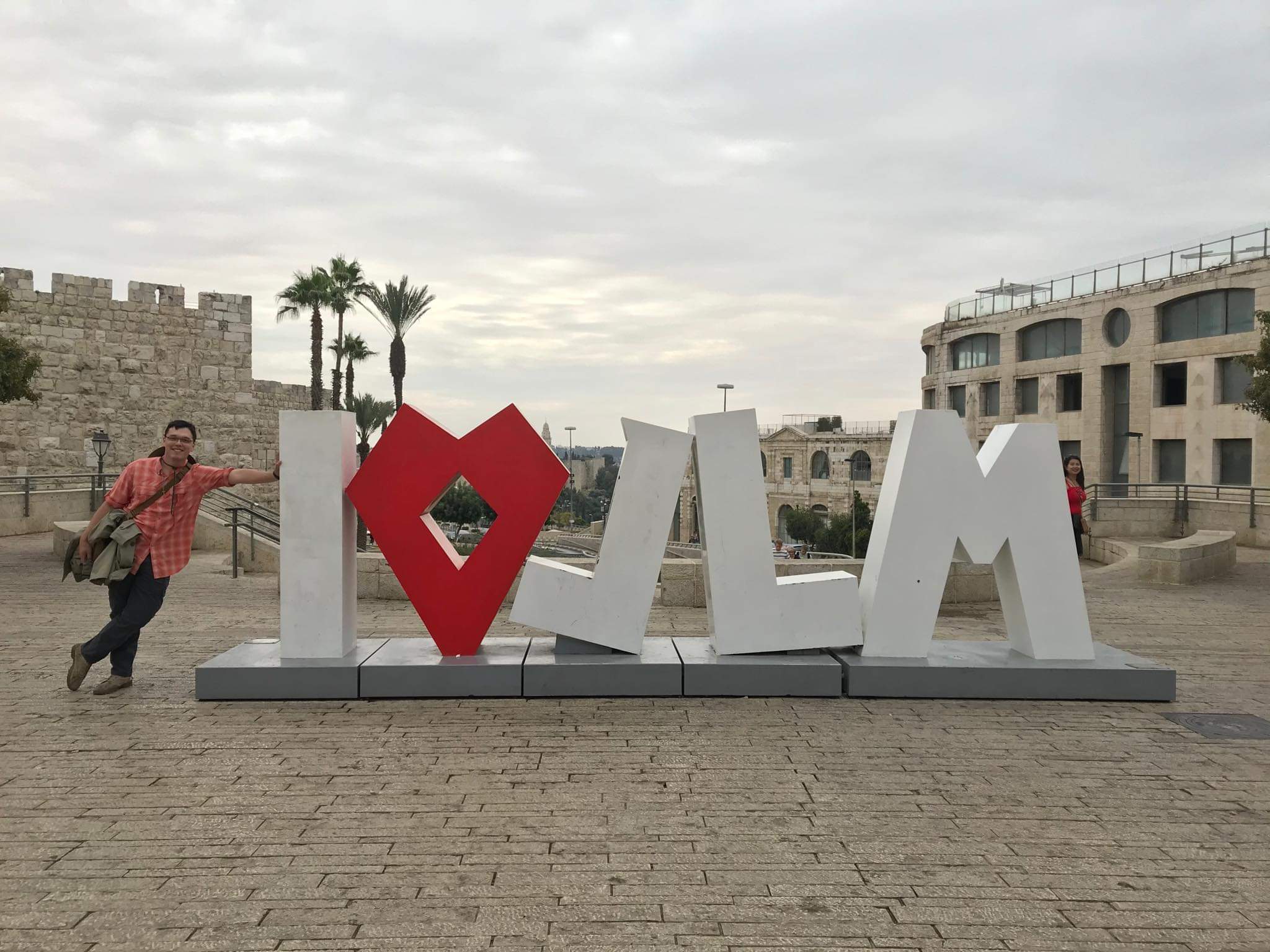
Things were going great during that first semester in Israel. Keoni was enjoying getting to know his new friends from around the world, several of whom were top graduates from the US Army’s West Point Military Academy. He appreciated learning about life in Israel and soaking up knowledge, wisdom, and personal insights from his deeply experienced professors—some with the Israeli government, some with ties to the Rand Corporation, others with 50+ years in counter-terrorism, experts in ISIS and Hezbollah, and the director for research at the International Institute of Counter-Terrorism (IITC).
“I got a research internship with IITC chronicling and reporting on three stages of radicalization in Indonesia that coincided with significant radicalization time periods and growth of radical groups from 2001 to 9/11, 9/11 to the Iraq and Iran conflicts, to today,” he explained.
Then, during finals, COVID-19 struck the region. The announcement went out that the following semester would be online. Israel went into shutdown. No one was permitted to venture more than 100 meters from their residence unless they were going only to the nearest grocery store.
“Suddenly, my friends and I were cut off from everything. No longer were we allowed to go to classes, see each other, visit professors, or see the historic sites,” he lamented. “It was a lonely time despite the online classes. It was two and a half months before restrictions eased. Shops and restaurants were shutting down. Families lost their livelihoods. You could see the economic devastation.”
As restrictions finally lifted a little in June, Keoni was allowed to return to the States and headed back to Alaska. From the safety of his family home, he has completed his coursework early—not a small feat for someone earning a Master’s Degree in Government with a specialization in Counter-terrorism and Homeland Security.
Next up for Keoni are the job interviews. He’s applied with a number of government agencies in relevant fields but is not at liberty to discuss which ones. He’s eager to employ what he’s learned and to gain the real-world experience that he admired in his professors at La Sierra and IDC Herzliya. In about five or 10 years, he expects to have it, along with a PhD so that he can teach his passion to others who are also dedicated to changing the world.
So how does his La Sierra experience continue to inform his journey?
“I received an education from highly experienced professionals who were people of faith and ethics. They showed and taught God-centered integrity and honesty. They taught ‘do justice, love mercy, and walk humbly with God (Micah 6:8).’ I wanted a fully integrated experience of principles and practice, not just a piece of paper,” he explained.
His professors saw a rare combination of drive and determination in Keoni and pushed him—an experience for which he is profoundly grateful.
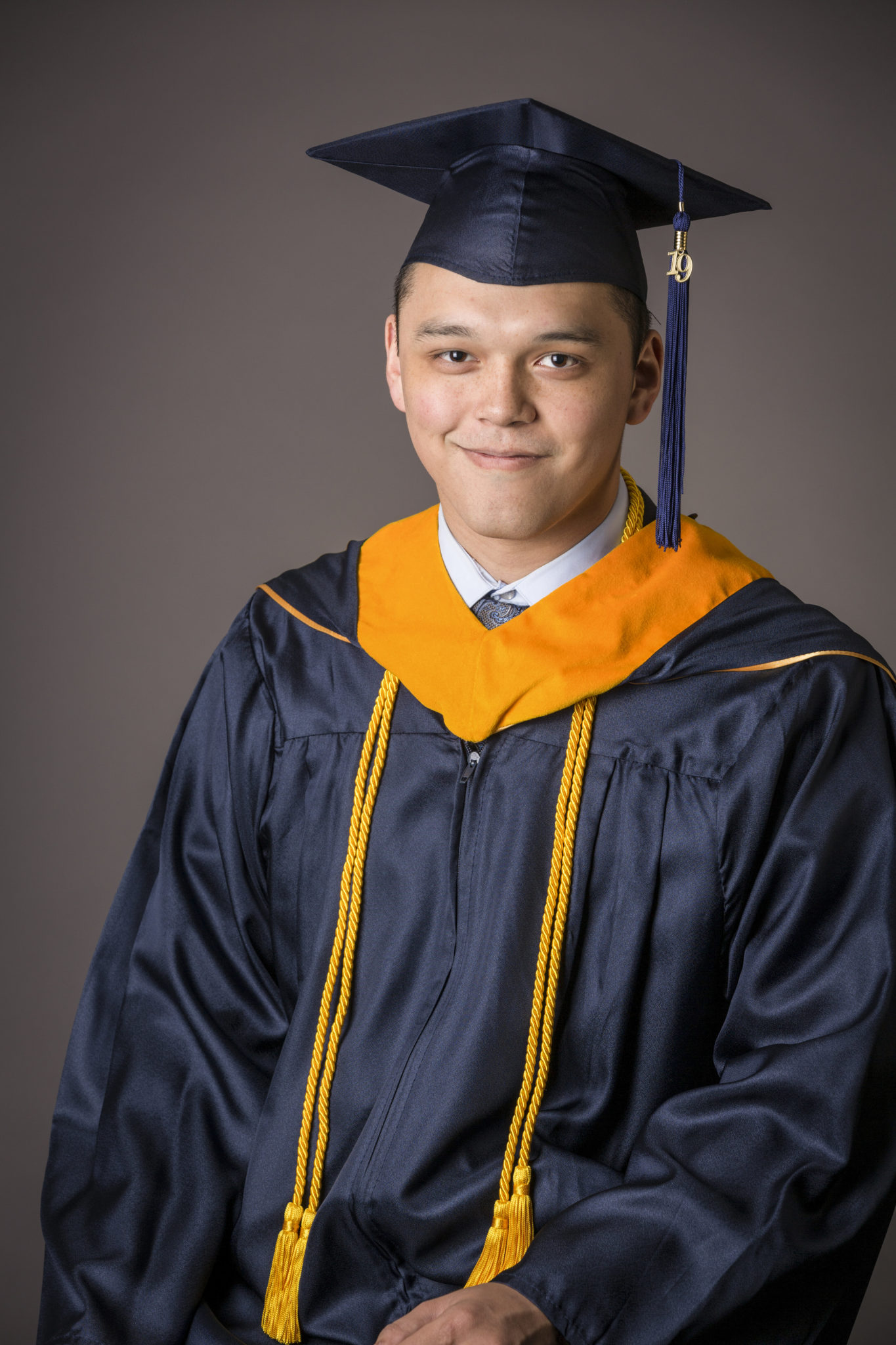
“I came here to do all I could do, experience all I could experience, and embrace it all, as challenging as it was. I got more than I asked for and did more than I was assigned. This is what the Criminal Justice program was about, and it paid off. I had a ton of support,” he remembers. “A lot of my peers went into law enforcement, and we were all taught that we needed deeper levels of empathy and to give more to the job in order to do it right.”
Thanks to both his academic adventures here and abroad, Keoni feels equipped to stare-down a criminal or terrorist and ask, what am I going to do with this monster and how would God want me to deal with him?
Keoni believes that Seventh-day Adventists and graduates from our schools should find the potential to live the words of Micah 6:8 to spread hope, change lives, and improve their worlds as peacemakers in careers beyond medicine, education, missionary work, or pastoral work.
“You can make an impact for Christ in any career. Everyone can be a peacemaker. We shouldn’t take sides in worldly affairs, and we each need to remember that violence only begets violence and not to use it to advance worldly affairs. That drives people away from Jesus.
“I want to make a difference no matter what job I end up in. I want to be in God’s will. There’s nothing more important than to walk with Him, no matter where He places you in this world.”
And that comes from La Sierra’s soon-to-be counter-terrorism expert.

